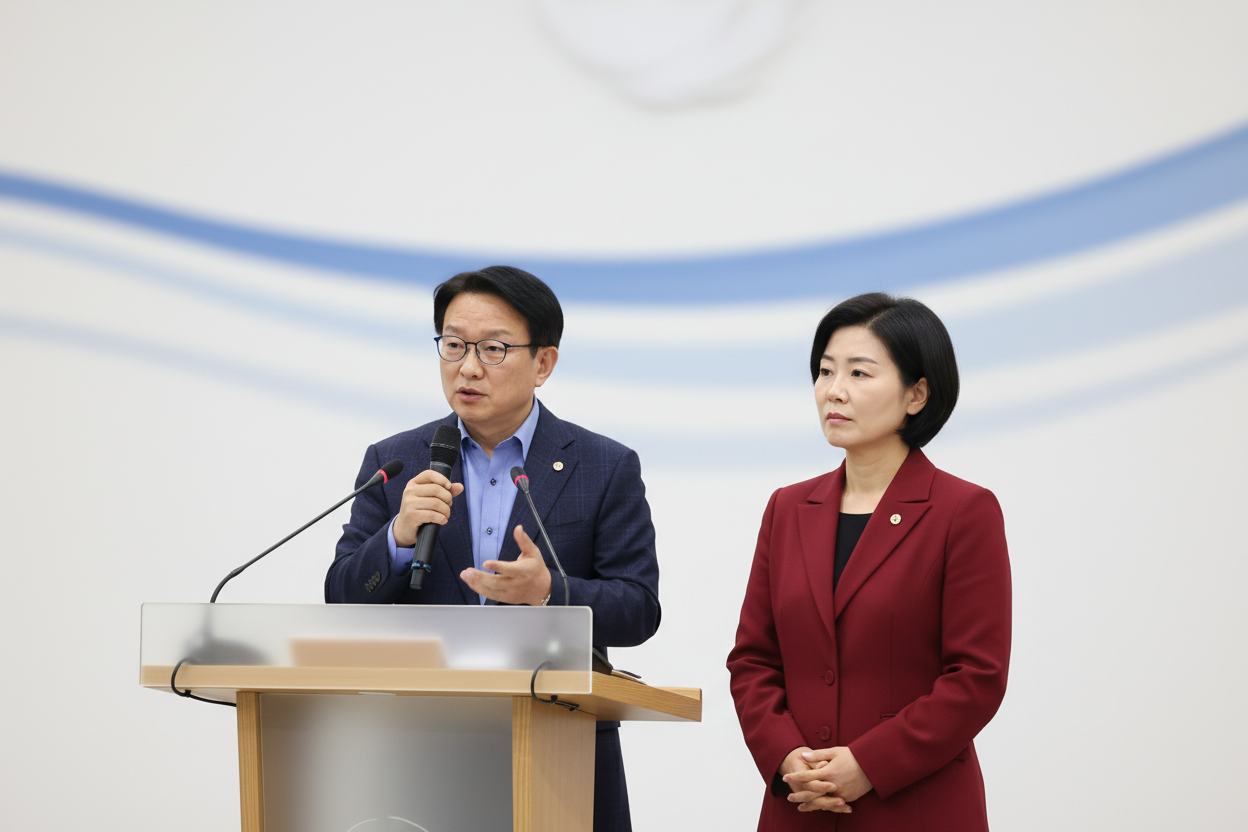U.S.-Korea Summit: Proceed with Caution on Tariff Negotiations

U.S.-Korea Summit: Prioritize Caution over Hasty Tariff Deals – Key Takeaways
As South Korean President Lee Jae-myung prepares to meet with U.S. President Donald Trump on October 29, 2025, voices are rising against rushing into any tariff agreements during the summit. While the meeting is expected to be a crucial opportunity to redefine economic relations and strengthen security cooperation between the two nations, analysts stress the need for a cautious and strategic approach to sensitive issues like tariffs.
Kwon Chil-seung, a Democratic Party lawmaker, emphasized on KBS 1Radio's <Frank Talk Show> that reaching a tariff agreement shouldn't be the primary goal of the summit. Kwon expressed concern that a hasty agreement, given the current complex global economic landscape and the U.S.'s protectionist stance, could negatively impact the South Korean economy. He advocated for negotiations aimed at maximizing long-term national interests, urging in-depth discussions over a sufficient period. He added that it's crucial to analyze U.S. tariff policy changes thoroughly and explore ways to bolster South Korea's industrial competitiveness. Moreover, he stressed that the summit should focus on building trust between the two countries and fostering mutually beneficial economic relations. Soh Hyun-jung hosted the <Frank Talk Show>, featuring Kwon Chil-seung and Kim Hee-jung, providing a platform for diverse opinions.
Kim Hee-jung, a People Power Party lawmaker, echoed the call for a cautious approach to tariff negotiations, emphasizing the importance of strategic judgment over rushed deals. Kim warned that while "waiting may incur losses, sending the wrong signals could be even more damaging." She cautioned against prioritizing short-term gains at the expense of long-term national interests. She emphasized that South Korea needs to respond skillfully to U.S. trade pressure through a multifaceted diplomatic strategy. Furthermore, Kim asserted that the summit should reaffirm the strong U.S.-Korea alliance and focus on further strengthening security cooperation. She added that close cooperation between the two countries is essential for maintaining peace and stability on the Korean Peninsula, given the ongoing nuclear threats and missile provocations from North Korea. Kim also commented on Democratic Party leader Chung Cheong-rae's proposal for a non-partisan cooperation week, stressing the need to prioritize national interests through cross-party collaboration.
Sung Ki-young, director of the Center for American Studies at the Institute for National Security Strategy, anticipates that the summit's key agenda will include modernizing the U.S.-Korea alliance and restarting U.S.-North Korea dialogue in addition to tariff negotiations. Sung emphasized that the U.S.-Korea alliance should expand beyond security to encompass economic, technological, and cultural areas, advocating for greater cooperation between the two countries. He added that cooperation in cutting-edge technology is particularly crucial for securing South Korea's future growth engines. He also stressed the need for joint U.S.-Korea efforts to restart U.S.-North Korea dialogue, advocating for continued diplomatic efforts to advance the Korean Peninsula peace process. He added that South Korea should take a proactive role in initiating U.S.-North Korea talks and successfully guiding denuclearization negotiations. The U.S. announced reciprocal tariff rates targeting trade partners worldwide, including South Korea, in April.
Previously, in late July, South Korea announced a $350 billion investment package in the U.S. in exchange for the U.S. lowering its proposed reciprocal tariff rate on South Korea from 25% to 15%. While this was seen as an unavoidable choice in response to U.S. trade pressure, some critics argued that it was an excessive concession. Therefore, there is growing demand for a more balanced agreement based on these past negotiations at the upcoming U.S.-Korea summit. In particular, there are strong calls for negotiations that protect South Korea's industrial competitiveness and secure its future growth engines. Concerns about new trade barriers such as the U.S. Inflation Reduction Act (IRA) are also being raised, as is the need to correct discriminatory treatment of South Korean companies. Given these diverse and intertwined interests, this U.S.-Korea summit is expected to be a crucial turning point for the future of the South Korean economy. On the same day, the Ministry of National Defense appointed retired Air Force Brigadier General Kim Hong-chul as the Director-General for Defense Policy.
